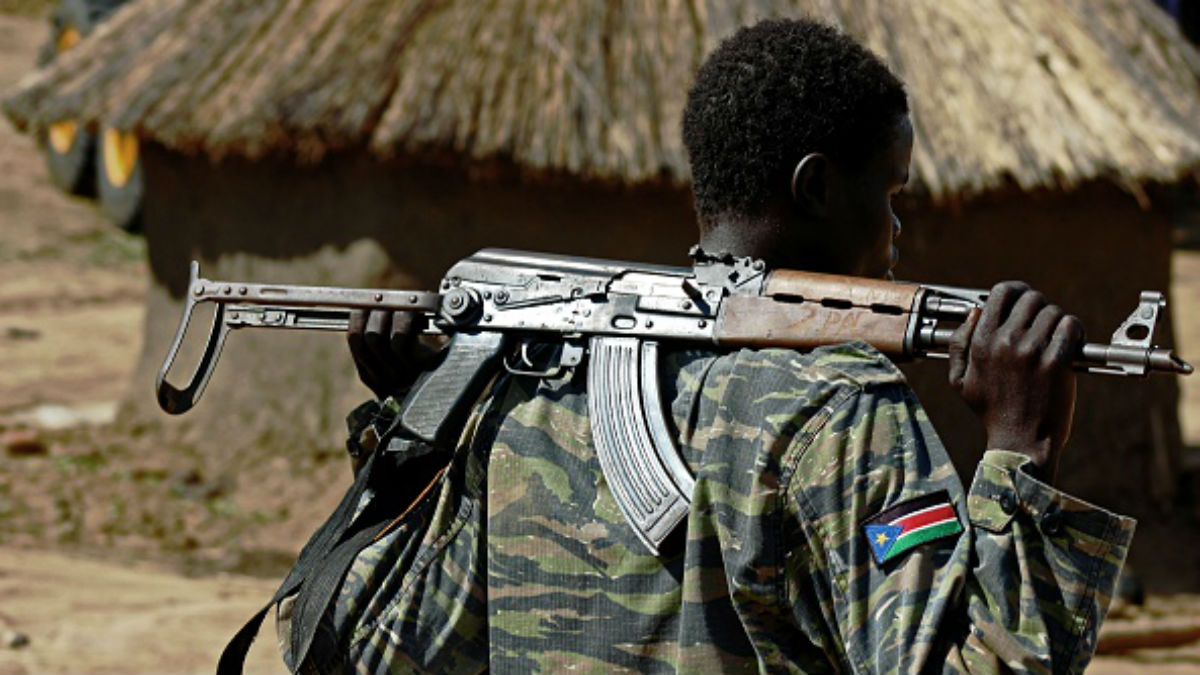Armed groups on the rise: how battlefield dynamics are changing
New figures show there are both more conflicts and more sides within each one

A free daily email with the biggest news stories of the day – and the best features from TheWeek.com
You are now subscribed
Your newsletter sign-up was successful
More non-state armed groups have emerged in the past six years than in the previous six decades, according to new research from the International Committee of the Red Cross (ICRC).
The Geneva-based humanitarian organisation also found that the number of non-international armed conflicts more than doubled from the beginning of the century.
“Not only are there more conflicts, but there are more sides in a conflict,” adds the ICRC in a report on its website.
The Week
Escape your echo chamber. Get the facts behind the news, plus analysis from multiple perspectives.

Sign up for The Week's Free Newsletters
From our morning news briefing to a weekly Good News Newsletter, get the best of The Week delivered directly to your inbox.
From our morning news briefing to a weekly Good News Newsletter, get the best of The Week delivered directly to your inbox.
About a third of clashes today are between two parties, nearly half are between three to nine parties, and a quarter feature more than ten parties in the warring territory.
By the end of the Libyan war in October 2011, 236 separate armed groups were registered in the city of Misrata alone. In Syria, more than 1,000 armed groups were counted in 2014.
“We’re seeing a high level of fragmentation,” says Clionadh Raleigh, professor of political geography and conflict at the University of Sussex.
“There has been a loosening of rules around violence generally, a loosening of order,” Raleigh adds, in quotes reported by The New York Times.
A free daily email with the biggest news stories of the day – and the best features from TheWeek.com
The continued rise of local factions, each structured in different ways but frequently with less top-down control, causes a problem for organisations such as the ICRC, who would normally advise military commanders on international humanitarian law and rely on them to enforce the rules.
“In this new labyrinth of non-state and state-sponsored fighters, humanitarian workers have a harder time reaching wounded soldiers and civilians and protecting their own staff members,” says the US newspaper. “They are also finding it more challenging to teach the non-state fighters about the Geneva Conventions and how those laws of warfare should apply to them.”
In a newly released study, The Roots of Restraint in War, the ICRC says that the new battlefield dynamic makes influencing warring groups more difficult but not impossible.
The report recommends that humanitarian workers find culturally specific ways of getting their message across. A case study in South Sudan looked at the impact of speaking to local prophets who hold sway within the community, or using local customs as analogies for humanitarian law.
-
 6 of the world’s most accessible destinations
6 of the world’s most accessible destinationsThe Week Recommends Experience all of Berlin, Singapore and Sydney
-
 How the FCC’s ‘equal time’ rule works
How the FCC’s ‘equal time’ rule worksIn the Spotlight The law is at the heart of the Colbert-CBS conflict
-
 What is the endgame in the DHS shutdown?
What is the endgame in the DHS shutdown?Today’s Big Question Democrats want to rein in ICE’s immigration crackdown
-
 Epstein files topple law CEO, roil UK government
Epstein files topple law CEO, roil UK governmentSpeed Read Peter Mandelson, Britain’s former ambassador to the US, is caught up in the scandal
-
 Iran and US prepare to meet after skirmishes
Iran and US prepare to meet after skirmishesSpeed Read The incident comes amid heightened tensions in the Middle East
-
 Syria’s Kurds: abandoned by their US ally
Syria’s Kurds: abandoned by their US allyTalking Point Ahmed al-Sharaa’s lightning offensive against Syrian Kurdistan belies his promise to respect the country’s ethnic minorities
-
 Israel retrieves final hostage’s body from Gaza
Israel retrieves final hostage’s body from GazaSpeed Read The 24-year-old police officer was killed during the initial Hamas attack
-
 China’s Xi targets top general in growing purge
China’s Xi targets top general in growing purgeSpeed Read Zhang Youxia is being investigated over ‘grave violations’ of the law
-
 Syria’s Islamic State problem
Syria’s Islamic State problemIn The Spotlight Fragile security in prison camps leads to escape of IS fighters
-
 Panama and Canada are negotiating over a crucial copper mine
Panama and Canada are negotiating over a crucial copper mineIn the Spotlight Panama is set to make a final decision on the mine this summer
-
 Why Greenland’s natural resources are nearly impossible to mine
Why Greenland’s natural resources are nearly impossible to mineThe Explainer The country’s natural landscape makes the task extremely difficult